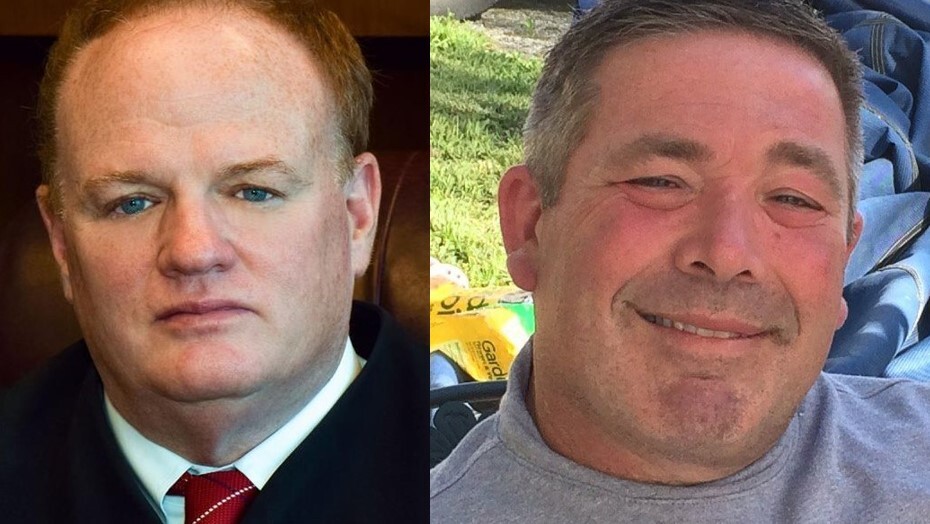BELLEVILLE – Illinois Attorney General Kwame Raoul has sided with legal researcher Brad Van Hoose in numerous requests for government records, but now he blocks Van Hoose’s access to records about Chief Judge Andrew Gleeson.
Raoul assigned assistant AG Lisa Cook to represent Gleeson against a petition Van Hoose filed in November to unseal court records.
Van Hoose alleges that Gleeson, as an associate judge running for circuit judge, concealed earlier convictions for driving under the influence.
His petition claims that Gleeson expunged a similar conviction for wife Denise Chomicki while he stood for retention in 2018.
He alleges Gleeson used the power and privilege of his office to deal for himself.
He has moved for a judge from another circuit.
Gleeson assigned Randolph County Associate Judge Eugene Gross, keeping the petition within the circuit.
Raoul and Cook moved to dismiss the petition in December.
Their entry surprised Van Hoose, who for 10 years turned to that office for relief when local governments denied his information requests.
He praised Illinois AG access counselor Sarah Pratt and staff in an interview on March 15.
“I don’t recall them ever rejecting one of my requests for review,” he said.
He said they opened Caseyville’s itemized legal bills in 2013, when the village would not provide them.
He said that in 2019, they opened the Facebook activity log of Belleville police, confirming the length of time they featured former judge Ron Duebbert as a suspect. Belleville police did not provide the log until the AG’s office intervened. Charges against Duebbert fell through.
Van Hoose said he gave the Facebook log to Duebbert, who currently pursues damages in a malicious prosecution suit against Belleville police and others.
In January, Van Hoose moved to disqualify the Attorney General from representing Gleeson.
He wrote that by representing a judge charged with malfeasance, the office placed Andrew Gleeson’s personal issues ahead of the people of Illinois.
“The Illinois Attorney General cannot argue for violation of the laws when it is charged with enforcing said laws, especially open access to court records,” he wrote.
He amended his complaint, stating Illinois law doesn’t allow a person to seal or expunge a criminal record of driving under the influence.
“Before defendant Andrew J. Gleeson ran for circuit judge, he and others manipulated the court records to retroactively reduce the convictions to another lesser charge in order to seal the record,” he wrote.
When asked for a response to Van Hoose’s petitions, Gleeson said on Nov. 30 that he had no comment except it was curious that the petitions followed a disciplinary ruling against lawyer Margaret Lowery.
“The retaliation starts again,” Gleeson said.
Cook moved to dismiss the amended complaint on March 2, stating the records appeared to have been expunged rather than merely sealed.
“Any motion to vacate, modify or reconsider an order granting a motion to seal or expunge must be filed under provisions in the code of civil procedure,” Cook wrote.
“The circuit court that granted the motion to seal retains jurisdiction whether to vacate, modify, or reconsider its terms.”
On March 3, Van Hoose responded that if the records were expunged he wouldn’t have been able to obtain them.
“Plaintiff has no evidence the records were ever expunged and if defendant claims this was done, he has just admitted to violating statutory law,” Van Hoose wrote.
“Expunged records are physically destroyed.”
“Sealed records are not destroyed but are kept confidential.”
He claimed Cook tried to confuse the court by using the terms interchangeably.
His motions to disqualify Raoul and assign a judge from another circuit remained pending as of March 15.
In his interview he said, “It’s unbelievable that judge Gleeson is having taxpayers pay for his defense when it’s about his own conduct.
“I think he wants to hide behind the attorney general and hope this goes away entirely.”
